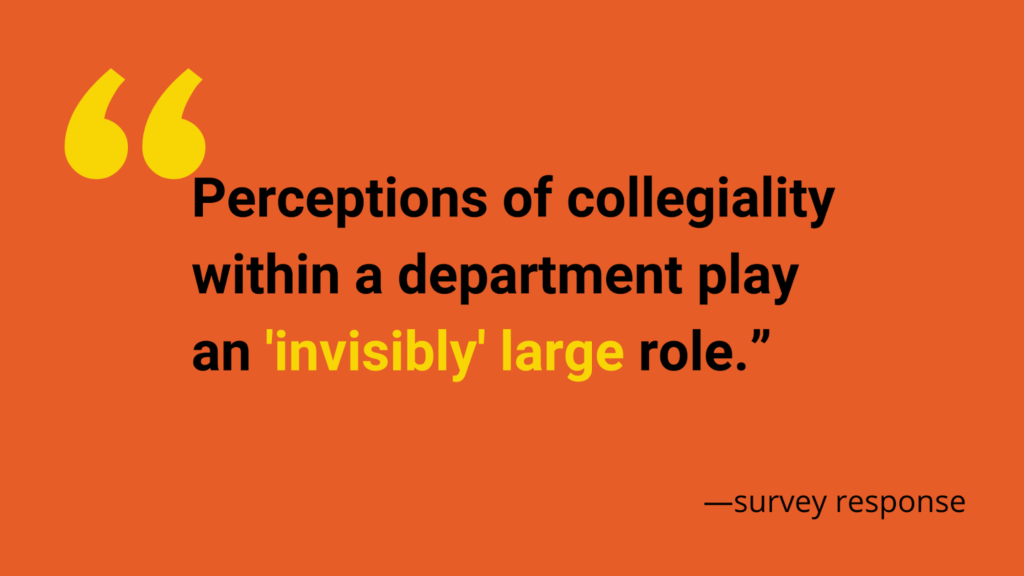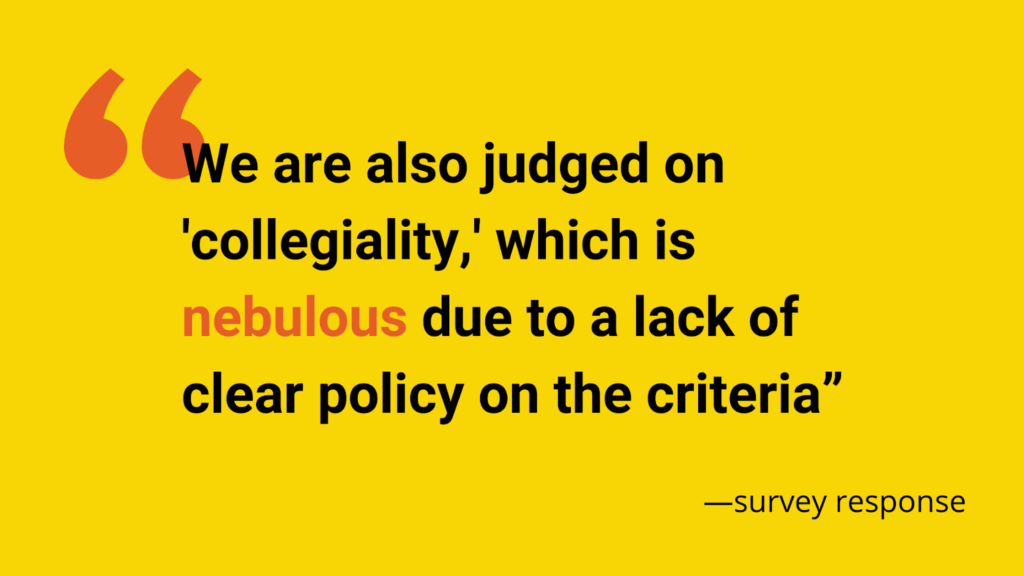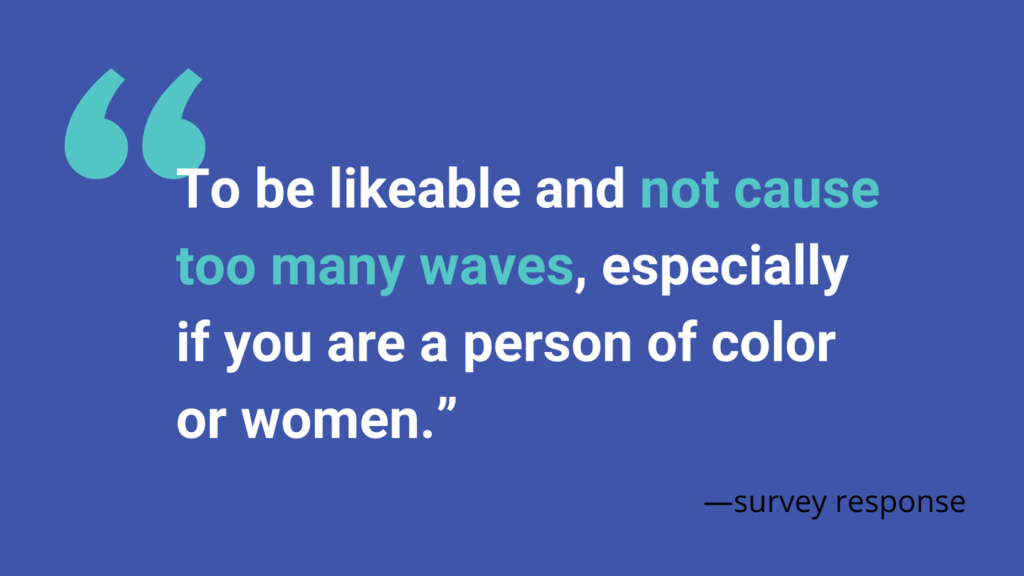Not “collegial” enough: New study examines unsaid criteria in the tenure process

“Denying a professor tenure, Harvard sparks a debate over ethnic studies,” reads a New York Times story published in January 2020. “After twice being denied tenure, this Naval Academy professor says she is seeking justice,” a more recent headline proclaims. “Academic tenure: In desperate need of reform or of defenders?” asks another.
These headlines offer a taste of the debate that has played out about academic review, promotion, and tenure (RPT) process over the last two years. In the wake of several high-profile cases—most of which involve women or BIPOC scholars who were denied tenure without any clear cause—institutions are under pressure to reevaluate the way in which they make decisions about who gets to stay “in” and who is ultimately pushed out. At the heart of this reckoning are questions about the hidden, implicit values and biases that shape the nature of RPT decisions. In the system that ultimately has the final say about faculty careers, these factors are too often left unsaid.
Over the past 5 years, the ScholCommLab has worked to shed light on these factors and build critical understanding of the nature of the RPT process. Through a series of mixed-method studies, the research team analyzed RPT documents and surveyed scholars from 129 institutions across Canada and the US. Their work has already shed light on many problematic aspects of the RPT process, including an overreliance on flawed metrics, an undervaluation of public forms of scholarship, and unclear and circular definitions of important terms like “impact” and “prestige.”
Now, in its sixth and final study, the research team has turned its attention to another controversial aspect of the RPT process: collegiality.

Collegiality: a double-edged sword in tenure decisions
“Collegiality can be a bit of a double-edged sword,” explains DeDe Dawson, an Associate Librarian at the University of Saskatchewan and lead author of the new study. “It is difficult to assess fairly because it is amorphous and subjective in nature, but if it is not defined it has the potential to be misused to enforce homogeneity, stifle dissent, or as a cover for discrimination.”
People define the term “collegiality” differently, but at its most basic level, it relates to the quality of relationships. In academic contexts, it’s usually used to describe the ways in which faculty members interact, collaborate, and share responsibilities with each other. Whether collegiality should be formally included in RPT processes is an ongoing controversy that has intensified following the recent high-profile tenure-denial cases. Even when collegiality is not formally included in the RPT process, however, survey data suggests that faculty members consider it to be a factor shaping the RPT decisions at their institutions.

To better understand this apparent contradiction, DeDe worked with Esteban Morales, Erin McKiernan, Lesley Schimanski, Meredith Niles, and Juan Pablo Alperin to examine whether and how “collegiality” featured in a sample of more than 850 RPT documents. The results, published April 6th in PLOS ONE, suggest that collegiality and related terms do appear in at least some RPT documents, particularly those at research-focused universities. When these terms are mentioned, however, the team found that the descriptions tend to be brief at best, providing little information about what “collegiality” actually means or how it would be formally assessed.

Reimagining the future of the RPT process
For DeDe, the lack of clarity surrounding collegiality is concerning: “If this term is left undefined, it could be weaponized to punish those who don’t ‘fit in,’” she says. “It opens it up to be an informal criterion for excluding people based on personal biases.”
But while the findings are bleak, DeDe is not. “I hope our results will motivate departments to begin discussing how best to handle these situations in their own RPT documents and processes,” she says. “Individual faculty members also have a role to play: call out the biases you see playing out on tenure committees. Suggest changes to your RPT standards to recognize and reward collegial behaviours. Work with your colleagues to ensure your department’s RPT documents include clear, equitable reflections of what you value.”
Want to learn more about the RPT project? Read the full study at PLOS ONE or visit the ScholCommLab website to learn more about the RPT project.
1 Comment
Comments are closed.
[…] “collegiality” was hardly ever defined in RPT documents, faculty we surveyed said that it plays an important role in the tenure process. […]